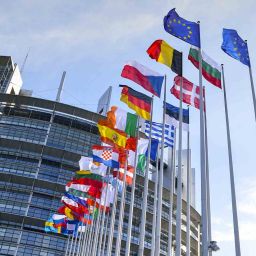Governments need to step up their efforts and coordination to combat money laundering and terrorist financing by adopting stricter regulation and supervision of the virtual assets sector and the specialised “gatekeeper” professions, such as lawyers, accountants and other services providers who often help launderers, according to the Council of Europe’s anti-money laundering and counter-terrorist financing body MONEYVAL.
In its annual report for 2021, released today, MONEYVAL examines the action required to improve the combat against money laundering. It also assesses compliance with international standards and developments in the legal and institutional frameworks to prevent money laundering and terrorist financing in the 34 jurisdictions*** that were subject to its monitoring as at 31 December 2021.
Elżbieta Frankow-Jaśkiewicz, Chair of MONEVYAL, said: “The Pandora papers scandal in 2021 demonstrates the growing scale of the money laundering threat and the persistence of launderers in abusing the international financial system to hide their illicit proceeds. We are facing a combination of well-known money laundering methods and newer trends requiring robust action and coordination from governments in Europe and around the world”.
The ‘Pandora Papers‘ showed that specialised professionals can be complicit in the large-scale transnational money laundering schemes involving corrupt politicians and high-net-worth individuals seeking to evade taxes, often using offshore jurisdictions and complex corporate structures. In recent years MONEYVAL has worked with the Financial Action Task Force (FATF) to enhance their regulatory regime, which resulted in 2021 in the modification of the international FATF standard to regulate transnational operations of “gatekeepers” and improve their global compliance.
The emerging virtual assets sector and the increasing use of cryptocurrencies are becoming a significant challenge to combat money laundering since the traditional forms of control that banks and institutions have on financial flows and services cannot be used and financial products are made available through the internet from anywhere in the world.
In its report, MONEYVAL concludes that its member states and jurisdictions continue, on average, to demonstrate a moderate level of effectiveness combating money laundering and the financing of terrorism. The median level of compliance with FATF standards is below the satisfactory threshold in the supervision of the financial sector, private sector compliance, transparency of legal persons, convictions for money laundering offences, confiscations of assets, financial sanctions for terrorism and proliferation of weapons of mass destruction.
MONEYVAL expects to complete its 5th round of evaluations in 2024. By the end of 2021, 18 of the 22 jurisdictions evaluated by MONEYVAL in the 5th round of mutual evaluations were subject to its enhanced follow-up procedure for their insufficient level of compliance with AML/CFT standards: Albania, Andorra, Croatia, Cyprus, the Czech Republic, Georgia, Gibraltar, Hungary, Latvia, Lithuania, Malta, Poland, Republic of Moldova, Serbia, Slovakia, Slovenia, the UK Crown Dependency of the Isle of Man and Ukraine. Armenia, the Holy See, San Marino and Israel (the latter was jointly evaluated by the FATF and MONEYVAL) are subject to MONEYVAL’s regular follow-up procedure.
***Due to its exclusion from the Council of Europe on 16 March 2022, the Russian Federation is no longer a member of MONEYVAL. MONEYVAL now evaluates 33 countries and jurisdictions.***
Original source of article: www.coe.int


